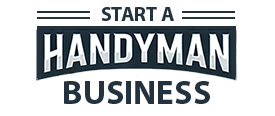Handyman Insurance Essentials: Coverage, Cost, and Providers
Handyman Insurance Essentials: The Ultimate Guide to Coverage, Costs, and Top Providers
Handyman Insurance Essentials: Coverage, Cost, and Providers
Running a handyman business is rewarding, but it comes with risks. From accidental property damage to injuries on the job, unforeseen incidents can lead to costly liabilities. The best way to protect your business and livelihood is by securing the right insurance coverage.
In this comprehensive guide, we’ll explore essential handyman insurance types, their costs, and some of the best providers to consider.
Why Handyman Insurance is Essential
1. Protecting Your Business
Insurance shields you from financial losses resulting from accidents, lawsuits, or property damage. Without it, you could be forced to cover these costs out of pocket.
2. Building Client Trust
Having insurance demonstrates professionalism and responsibility. Many clients require proof of insurance before hiring a handyman.
3. Meeting Legal Requirements
Some states or local jurisdictions mandate specific insurance policies for handymen, particularly if you’re licensed or working on larger projects.
Key Types of Handyman Insurance
1. General Liability Insurance
This is the most basic and essential policy for any handyman. It covers:
•Bodily Injury: If a client or third party gets injured on the job.
•Property Damage: If you accidentally damage a client’s property.
•Personal or Advertising Injury: Protection from claims like slander or copyright infringement.
Example: While fixing a door, you accidentally break a nearby window. General liability insurance would cover the repair costs.
2. Professional Liability Insurance (Errors & Omissions)
Professional liability insurance protects against claims of negligence or poor workmanship.
Example: A client claims that your repair work caused further damage to their property. This policy helps cover legal fees and settlements.
3. Commercial Auto Insurance
If you use a vehicle for business purposes, commercial auto insurance is crucial. It covers:
•Damage to your vehicle in an accident.
•Liability for injuries or damage to other vehicles.
•Theft of tools or materials from your vehicle.
Example: You’re driving to a job site, and an accident occurs. Commercial auto insurance helps cover repair costs and medical expenses.
4. Tools and Equipment Insurance
This policy covers the cost of repairing or replacing stolen or damaged tools and equipment.
Example: If someone breaks into your truck and steals your power tools, this insurance covers the replacement costs.
5. Workers’ Compensation Insurance
If you have employees, workers’ compensation insurance is often legally required. It covers medical expenses, lost wages, and rehabilitation costs if an employee gets injured on the job.
Example: Your assistant cuts their hand while using a saw. Workers’ comp pays for their medical treatment and lost income during recovery.
6. Commercial Property Insurance
If you operate from a workshop or office, this policy covers damage to the building and its contents from events like fires, floods, or theft.
Example: A fire damages your workshop and tools. Commercial property insurance helps pay for repairs and replacements.
How Much Does Handyman Insurance Cost?
The cost of insurance varies based on factors like your location, services offered, and coverage limits. Here’s a breakdown of typical costs:
1.General Liability Insurance:
- Average Cost: $400–$1,200 annually.
- Coverage Limit: Typically $1 million per occurrence.
2.Professional Liability Insurance:
- Average Cost: $500–$1,500 annually.
- Coverage Limit: $1 million–$2 million.
3.Commercial Auto Insurance:
- Average Cost: $1,200–$2,500 annually.
- Coverage depends on the vehicle’s value and usage.
4.Tools and Equipment Insurance:
- Average Cost: $75–$500 annually.
- Coverage Limit: Up to $10,000 or more, depending on policy.
5.Workers’ Compensation Insurance:
- Average Cost: $2,000–$4,000 annually for small businesses.
- Coverage: Based on payroll and state laws.
6.Commercial Property Insurance:
- Average Cost: $500–$2,000 annually.
- Coverage Limit: Varies based on the property’s value.
Top Handyman Insurance Providers
1. Next Insurance
Why Choose Next: Affordable, customizable plans specifically designed for handymen and contractors.
Coverage Options: General liability, professional liability, tools insurance, and more.
Website: Next Insurance
2. Hiscox
Why Choose Hiscox: Known for small business coverage and flexible payment options.
Coverage Options: General liability, professional liability, and business property insurance.
Website: Hiscox
3. Simply Business
Why Choose Simply Business: A marketplace that helps you compare multiple insurance providers.
Coverage Options: General liability, workers’ comp, and more.
Website: Simply Business
4. The Hartford
Why Choose The Hartford: Comprehensive small business policies with excellent customer service.
Coverage Options: General liability, workers’ compensation, and commercial auto insurance.
Website: The Hartford
5. State Farm
•Why Choose State Farm: Nationwide presence and customizable policies for small businesses.
Coverage Options: General liability, commercial property, and auto insurance.
Website: State Farm
How to Choose the Right Insurance for Your Business
1.Evaluate Your Risks: Consider the services you offer and the risks involved. For example, if you use expensive tools, tools insurance is essential.
2.Compare Quotes: Shop around to find the best rates and coverage options. Use online comparison tools to save time.
3.Read the Fine Print: Ensure you understand the coverage limits, exclusions, and deductibles.
4.Ask for Discounts: Some insurers offer discounts for bundling policies or having a clean claims history.
Protect Your Business with the Right Insurance
Handyman insurance is a vital investment in your business’s future. It not only protects your finances but also builds trust with clients and ensures compliance with legal requirements. By understanding your coverage needs and working with reputable providers, you can focus on growing your business with peace of mind.
Take the time to evaluate your options, compare quotes, and choose a policy tailored to your specific needs. With the right coverage in place, you’ll be prepared for any challenges that come your way.
For more detailed information on small business insurance, visit the Small Business Administration (SBA) website.
